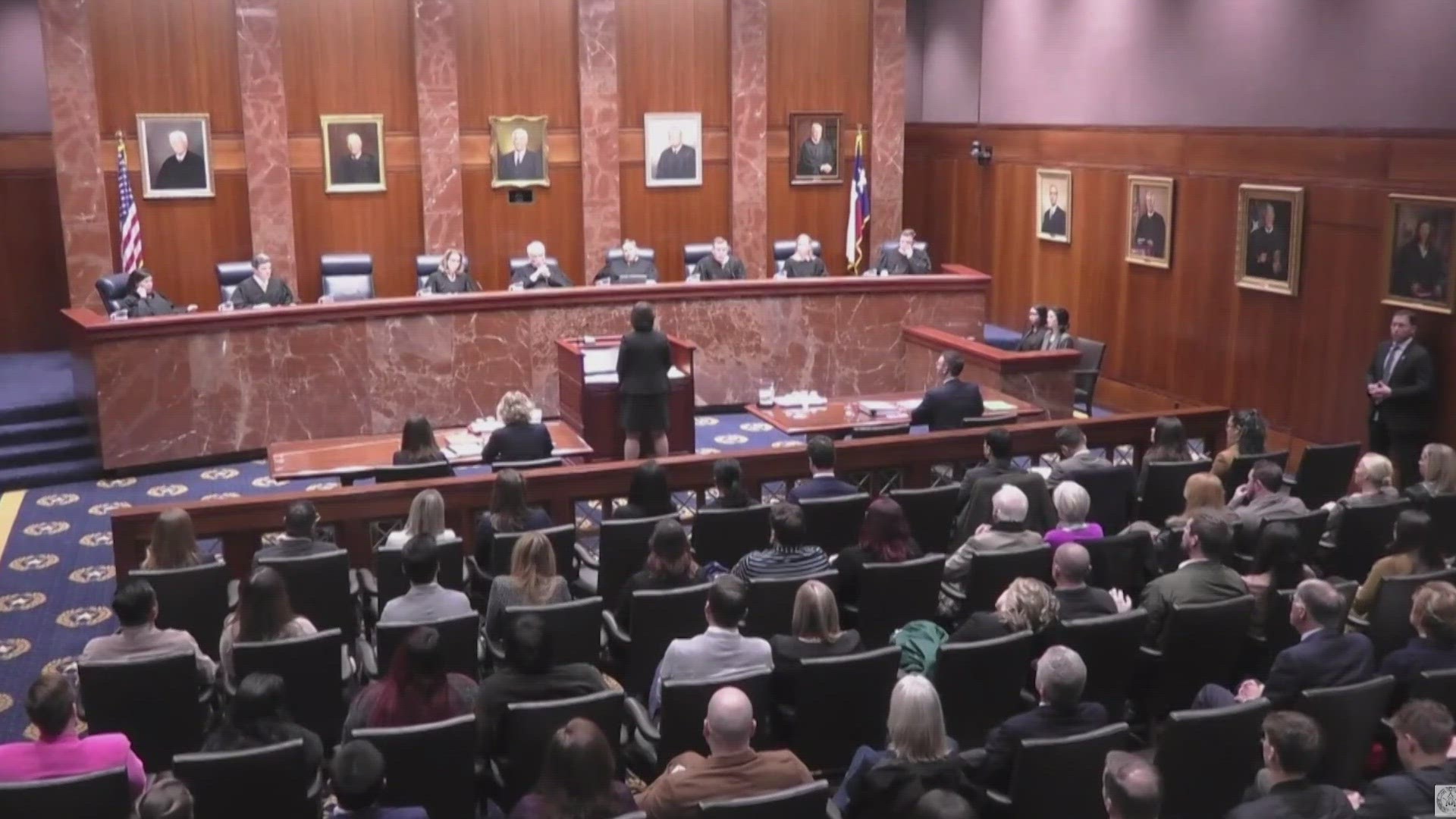AUSTIN, Texas — Texas Supreme Court justices are now weighing a big decision regarding the state's abortion law
Justices will decide whether to allow continued legal wrangling over specific aspects of the law or allow any alleged "vagueness" in its stipulated medical emergency exceptions to continue as is.
The justices heard arguments Tuesday morning from legal counsel for the State Attorney General's Office and The Center for Reproductive Rights. In March of this year, the center filed suit asking Texas to clarify the full scope of the medical emergency exceptions under the current law. Five women who say they were denied abortion care filed the original suit along with two doctors. Fifteen more women have since joined the lawsuit. Texas Attorney General Ken Paxton argues the case should be dismissed.
The plaintiffs include Danielle Mathisen of Fort Worth. An ultrasound at 18-weeks of pregnancy revealed a fetus with multiple abnormalities, including anencephaly. A trained OB/GYN herself, her doctors agreed the child would not live if the pregnancy went full term. But, faced with the new Texas law that bans abortion after six weeks of pregnancy and provides a medical exception only if the life of the mother is at risk, doctors in the state were reluctant to help her. She traveled to New Mexico to receive an abortion instead.
"I feel really hurt and betrayed by Texas," she told WFAA of the hesitancy doctors have to help in situations like hers out of fear they might be prosecuted, jailed and fined under the current law.
"And you acknowledge that puts professionals in a really bad situation?" Justice Debra Lehrmann asked in her questioning of counsel Beth Klusman with the Office of the Attorney General.
"No, your honor," Klusman replied. "I don't think it does. They are allowed to use reasonable medical judgement, which is presumably the judgement they use when treating a patient in any given circumstance. You are going to have to draw a line somewhere and there are going to be some hard calls," she said.
Justice Evan Young, in his questioning of the counsel for The Center for Reproductive Rights, argued police officers make these life and death decisions every day, so why can't a doctor.
"I just don't think the two situations are analogous at all," replied Center for Reproductive Rights attorney Molly Duane. "Police officers have qualified immunity. Physicians in this situation are in the opposite posture."
"We are optimistic that the court heard us. Heard them and saw them," Molly Duane said after the hearing. "And we look forward to hearing the court's ruling in due course."
"We are not in favor of any weakening exceptions," said Amy O'Donnell with Texas Alliance for Life. "Children who are diagnosed with a disability in the womb or a fatal diagnosis in the womb are as worthy of protection as any other child. And we believe that the language is adequate to protect a mother's life when a doctor needs to intervene to save her life or to avoid any risk."
There is no timeline on when the Texas Supreme Court justices will issue a decision. They could leave the law as it is or let the injunction stand until further lower court arguments spell out more clearly what physicians can and cannot do when it comes to abortion in Texas.

